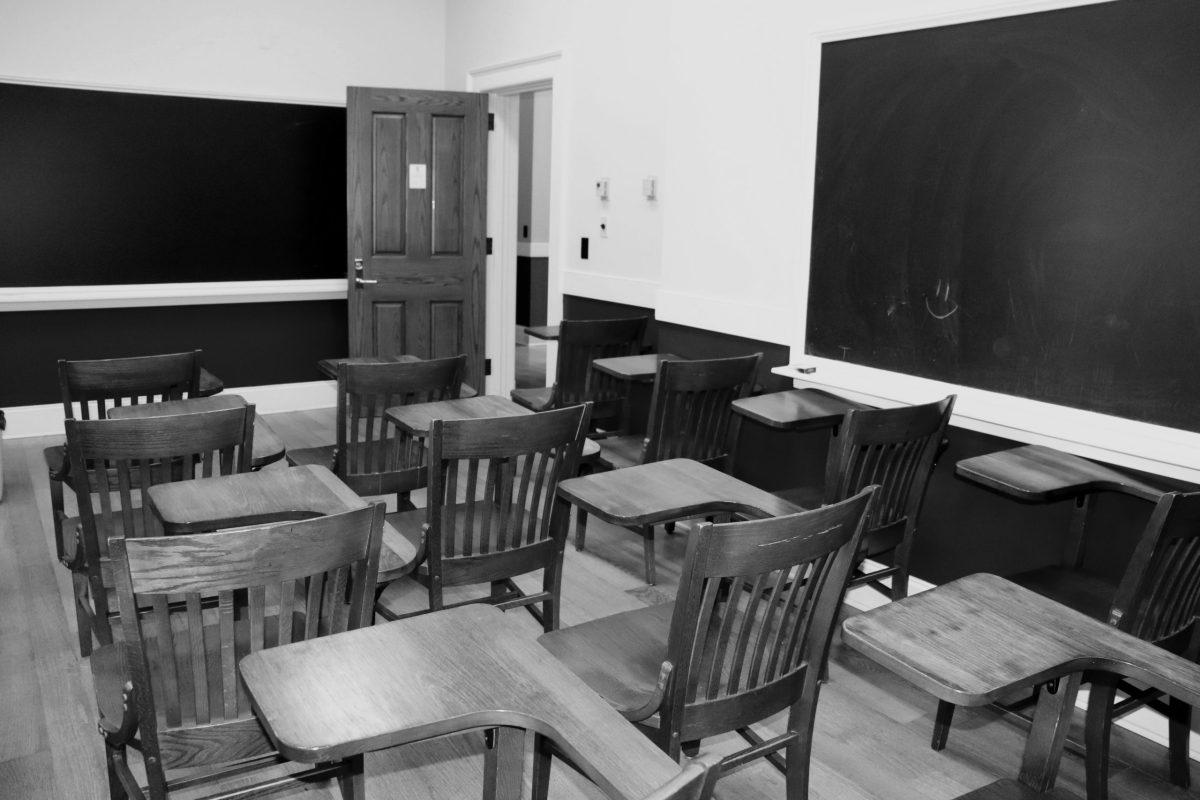A liberal arts education is built on many different foundations, but subjects which fall under the vague purview of “the humanities” — for example, English, history and modern languages — can slip through the cracks.
If these subjects are so crucial to a liberal arts education, why has there been a steady decrease in enrollment for some departments? Furthermore, why is there a decrease in only some specific subjects, and not others?
Many news outlets, such as PBS and “The Atlantic,” have commented on the decline of liberal arts and humanities majors, prompting many conversations across Wofford’s campus on what that means for the prestigious liberal arts college that is built upon the humanities majors. “Most people think that Humanities majors are not ‘practical’ because they generally do not lead directly into a specific job right after graduation,” said Mark Byrnes, chair of the history department.
While there is a decline of Humanities majors as a whole across the nation, Wofford’s numbers have remained fairly consistent. “Since we are a small college, any given year can be unusually large or small, but overall the average has remained the same,” said Byrnes.
With the growing student population, Wofford has remained consistent with general education requirements that cover all of the humanities, which is likely why enrollment has not seen a significant decline.
Focusing on history, specifically, Byrnes has seen a relative decline in the department’s majors with Wofford’s growing population. However, he still believes that history at Wofford is doing much better than at many institutions.
For John Ware, chair of the English department, it has been hard to discern a definitive downward trend at Wofford, but he has also noticed a broader, nationwide decrease.
“If Wofford has yet to provide clear evidence of (a downward) trend in relation to English Studies, it may have to do with the type of institution, the students who have attended Wofford over the period of time I noted above or the appeal and familiarity of English as a major or minor compared to other fields in the humanities,” said Ware.
Ware is optimistic for the future of the department “because of the adaptability of English and the humanities in general.”
Modern languages is an area where some Wofford professors have seen a decrease in enrollment, while others see a more-than-healthy enrollment. Generally, in secondary schools, students are only pushed to complete two courses of foreign language in order to complete graduation requirements.
The most common foreign language offered nationwide is Spanish. For some districts across America, that is the only foreign language.
Carrying with the trend, Catherine Schmitz, a professor of French, has seen the visible nationwide decrease in enrollment over the past ten years. “Many high schools cut or reduced language offerings. Many German and French programs were eliminated or districts cut, say, French IV or their AP language programs,” Schmitz said. “Those cuts directly affect our enrollments.”
Not only has the reduction of languages offered affected the enrollment for the French department at Wofford, the economic crisis of 2008 and COVID-19 have increased the anxiety to study modern languages. Both of these major economic setbacks have encouraged college students to major in degrees with “job security.”
Even still, the French department is full of very dedicated professors that are very aware of the challenges of decreased enrollment and are working to keep the future of their department bright.
While French enrollments at Wofford have decreased, Spanish has been exempt from the trend, as expected based on the high school language trends previously mentioned.
Laura Barbas-Rhoden, professor of Spanish, gave word on this lack of decline in the Spanish courses’ enrollment. “In Spanish, we continue to have healthy enrollments in our 300-level courses and robust (capacity or beyond) enrollment in our 400 level courses.” Barbas-Rhoden said.
The future of the department is likely to continue growing, which excites Barbas-Rhoden because it illustrates what bilingual/multilingual graduates can do to “foster inclusion and language justices” in a world of globalization.
Within the broad education that a liberal arts education offers, the humanities foster creativity and exploration of topics crucial to continuous learning.
Across the nation, the humanities as an entirety have seen a decrease in enrollment, while Wofford’s humanities has remained generally constant. The future of these departments are crucial to what makes a Wofford education a Wofford education.
Without the humanities, the liberal arts education as people currently know it would cease to exist.


























